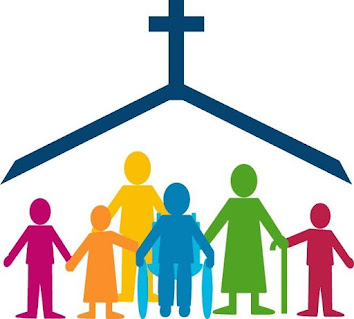For at least three generations now, the majority of mainline Protestant youth have left their churches by the time they reach adulthood. In each generation, a notable minority of these young persons choose to reactivate their participation when they become parents, usually in a congregation that has a strong children’s ministry. This tide now comes back in with diminishing force. Across 75 years, the overall decline has greatly cooked down the numbers of active younger people in mainline churches. The decline is further exacerbated by the fact that the minority who do return often don’t return to their home congregations at all. They congregate in a few places where minimum critical numbers of young families remain. Thus, most mainline Protestant congregations today have no active children remaining, and little promise for finding any.
Meanwhile, for one solid generation now, evangelicals and Southern Baptists have joined the above trend. American Evangelicalism is bleeding millions of young adults. A few of them join mainline churches. Most just quit. However, the vast majority of surviving children’s ministries in the United States appear to be in evangelical churches.
In the last decade, three additional factors have converged to further speed up church disaffiliation by America’s young families. These factors are (1) increasing intermarriage of persons from different religious traditions, (2) the pandemic disruption of Sunday habits and (3) the growing public perception that to be religious is to be “MAGA right-wing” politically.
Of course, we all know number 3 is to some degree a mis-perception. But the vast majority of young families remaining are in the more conservative churches, churches that are two generations behind in their decline. In other words, if I am 32 years old and contemplating reentering church life with my child, most of my options are churches whose people are majority Trumpist. In a society this polarized politically, this is a no-go for the majority of younger adults. So they stay home. And, yes, a lot of folks are highly aware of such things! A generation of dummies this is not.
The upshot of all this: if most of the churches with children are right of center politically, a church may be wise to go left at this fork, to really embrace justice issues and inclusion: to offer a clear and viable option for progressive parents. Anecdotally across three decades, I have observed churches often thrive when they lean progressive in social views/practices while retaining a bit of evangelical energy around issues of faith.
An example of this is the old First United Methodist Church of Longmont, Colorado, north of Denver. The church is now named Heart of Longmont Church. It is still United Methodist. In the latest episode of the podcast Church is Changing, I interview Pastor Claire McNulty Drewes, who explains the factors involved in this church’s full-blown rebirth. (https://soundcloud.com/field-preachers/church-is-changing-episode-53-claire-mcnulty-drewes)
Now, more than ever, a thriving church must demonstrate it is different than what most people would expect of churches.

No comments:
Post a Comment